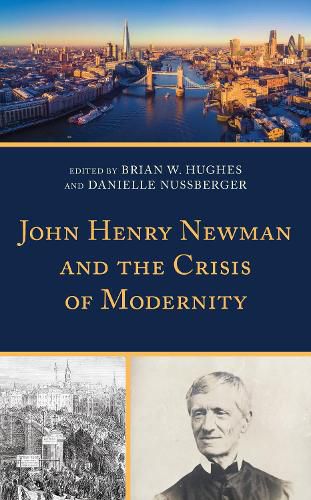Readings Newsletter
Become a Readings Member to make your shopping experience even easier.
Sign in or sign up for free!
You’re not far away from qualifying for FREE standard shipping within Australia
You’ve qualified for FREE standard shipping within Australia
The cart is loading…






This book blends historical, theological, and philosophical inquiries into what modernity means with the aim of showing how Newman can analyze, critique, and explain fruitful ways forward within a diverse range of subjects. First, it surveys historical and theological topics such as how Newman understood modernity, the sensus fidelium, the role of doubt and modern views of reason; Newman’s university ideal; and a return to the saint for much-needed anthropological insights. Second, the volume shows how Newman’s thought can be insightfully applied to key issues within church and society: the need to redefine American Catholicism, the challenge of secularization, the role of Christian joy, revelation and religious diversity, progress traps and the ecological crisis, and overcoming post-modern individualism. Throughout each chapter, contributors consistently bring Newman’s original and penetrating thought to bear upon critical themes in theological anthropology, ecclesiology, comparative theology, and spirituality. The volume shows how Newman’s thought can be extended and enriched by dialogue with contemporary thinkers such as Charles Taylor, Pope Francis, and Bruno Latour. In brief, the contributors demonstrate how Newman can help frame contemporary self-understandings and various theological and social imaginaries in the light of faith.
$9.00 standard shipping within Australia
FREE standard shipping within Australia for orders over $100.00
Express & International shipping calculated at checkout
This book blends historical, theological, and philosophical inquiries into what modernity means with the aim of showing how Newman can analyze, critique, and explain fruitful ways forward within a diverse range of subjects. First, it surveys historical and theological topics such as how Newman understood modernity, the sensus fidelium, the role of doubt and modern views of reason; Newman’s university ideal; and a return to the saint for much-needed anthropological insights. Second, the volume shows how Newman’s thought can be insightfully applied to key issues within church and society: the need to redefine American Catholicism, the challenge of secularization, the role of Christian joy, revelation and religious diversity, progress traps and the ecological crisis, and overcoming post-modern individualism. Throughout each chapter, contributors consistently bring Newman’s original and penetrating thought to bear upon critical themes in theological anthropology, ecclesiology, comparative theology, and spirituality. The volume shows how Newman’s thought can be extended and enriched by dialogue with contemporary thinkers such as Charles Taylor, Pope Francis, and Bruno Latour. In brief, the contributors demonstrate how Newman can help frame contemporary self-understandings and various theological and social imaginaries in the light of faith.